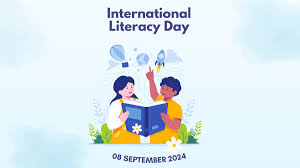
Since 1967, International Literacy Day (ILD) has been observed annually on September 8th across the globe. This day serves as a crucial reminder to policymakers, practitioners, and the public about the critical importance of literacy in creating a more literate, just, peaceful, and sustainable society. The observance underscores the ongoing global commitment to fostering literacy as a fundamental human right and a cornerstone of personal and societal development.
The Fundamental Role of Literacy in Society
Literacy as a Human Right
Literacy is not just a skill; it is a fundamental human right for all individuals. It serves as a gateway to the enjoyment of other human rights, greater freedoms, and global citizenship. The ability to read and write empowers individuals to:
- Participate more fully in society
- Access information and services
- Engage in lifelong learning
- Exercise their democratic rights
Literacy as a Foundation for Peace and Understanding
Beyond its practical applications, literacy forms the foundation for individuals to acquire broader:
- Knowledge
- Skills
- Values
- Attitudes
- Behaviors
These elements are crucial in fostering a culture of lasting peace based on respect for:
- Equality and non-discrimination
- The rule of law
- Solidarity and justice
- Diversity and tolerance
Literacy enables individuals to build harmonious relationships with themselves, others, and the planet, contributing to a more cohesive and understanding global community.
The Global Literacy Challenge
Despite decades of efforts, literacy remains a significant global challenge:
- At least one out of seven adults aged 15 and above (754 million) lack basic literacy skills
- Millions of children struggle to acquire minimum proficiency in reading, writing, and numeracy
- Approximately 250 million children aged 6-18 are out of school
These statistics highlight the urgent need for continued focus and investment in literacy programs worldwide.
International Literacy Day 2024: Theme and Focus
Theme: “Promoting Multilingual Education: Literacy for Mutual Understanding and Peace”
The 2024 celebration of International Literacy Day centers on the theme of multilingual education and its role in fostering mutual understanding and peace. This theme recognizes the increasing multilingualism in today’s world and the potential of language-inclusive approaches to literacy.
The Importance of Multilingual Education
Adopting a first language-based, multilingual approach to literacy development and education offers several benefits:
- Cognitive advantages: Enhances overall cognitive development
- Pedagogical benefits: Improves learning outcomes across subjects
- Socio-economic impacts: Increases opportunities for social and economic participation
Moreover, this approach can help promote mutual understanding and respect while solidifying communal identities and collective histories.
ILD 2024 Objectives and Activities
Key Objectives
The 2024 celebration aims to:
- Unpack issues related to literacy in multilingual contexts
- Explore solutions for enhancing policies, lifelong learning systems, governance, programs, and practices
- Promote the role of literacy in achieving lasting peace
Celebration Format
ILD 2024 will be celebrated through a combination of in-person and online events at global, regional, national, and local levels.
Global Celebration in Yaoundé, Cameroon
The global celebration will take place on September 9 and 10, 2024, in Yaoundé, Cameroon. This event will include:
- A global conference on multilingual literacy and education
- The award ceremony for the UNESCO International Literacy Prizes
- Side events, including:
- Annual meeting of the Global Alliance of Literacy within the Framework of Lifelong Learning (GAL)
- Meetings of the Action Research on Measuring Literacy and Alternative Education (RAMAED)
- UNESCO Global Network of Learning Cities gathering
The Cameroon location provides an opportunity to highlight the literacy agenda in Cameroon and Africa, aligning with the African Union’s Year of Education and beyond.





